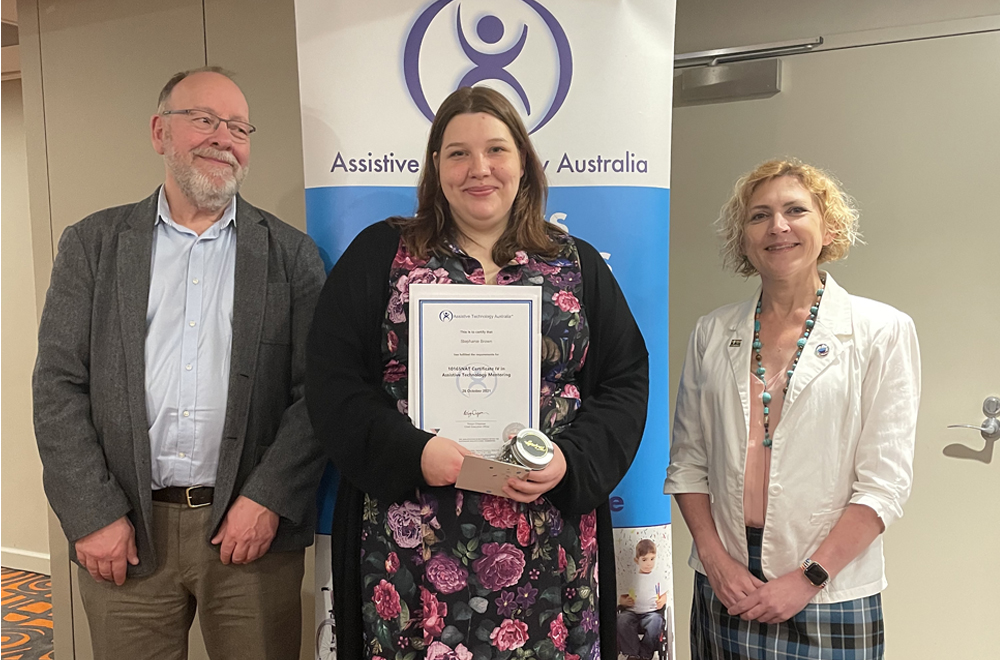ACT carer and Hartley Lifecare support worker, Stephanie Brown, has just graduated as the ACT’s first qualified AT Mentor.
A support worker and a family member of a person with a disability, Brown knows the challenges that many people face in engaging with day-to-day activities and understands the importance of assistive technology.
Receiving her Certificate IV in Assistive Technology Mentoring allows her to become an AT Mentor and advise, guide and support people with disabilities in their choices and decisions on assistive technology.
Assistive Technology Australia CEO, Robyn Chapman said people with disabilities and carers are an untapped resource in the community.
“There is a wealth of employment opportunities across the AT sector, in retail, allied health teams and in information provision. Our previous Certificate IV in Assistive Technology Mentoring graduates are now working in various roles across the sector, including information and advice, support co-ordination and in their own businesses,” Chapman said.
Two scholarships for the next Certificate IV in Assistive Technology Mentoring course, which begins at the end of November, were awarded to Craig Blomeley and Myles McRae.
“By supporting more people to access an AT mentor qualification, we are helping the community to harness the skill, knowledge and experience of people with disabilities through valued employment and career paths,” Chapman said.
The establishment of the Assistive Technology Mentors Association, a self-regulating body which will help AT mentors maintain their knowledge and skills, and support community confidence in the work of AT mentors, was also announced at the event.
AT mentors assist people to find AT that will meet a need and are able to act as assessors within the National Disability Insurance Agency.
According to Chapman AT mentors don’t currently have a regulating authority or association to support them. “We are working with AT mentors across the country to develop the Assistive Technology Mentors Association.”
Assistive Technology Australia has been providing AT Mentor qualifications for eight years and all graduates have either found meaningful employment or enhanced their employment as a result of the training. Some graduates are also self-employed.
The current graduating group includes 20 people from across Australia and New Zealand. Students from Papua New Guinea and Rwanda will graduate in the new year.
Caption: Board chair Jonathan Ladd, Stephanie Brown and ACT Disability Minister Emma Davidson
For more information on Certificate IV in Assistive Technology Mentoring, visit https://at-aust.org/home/training/at_mentoring.html.

